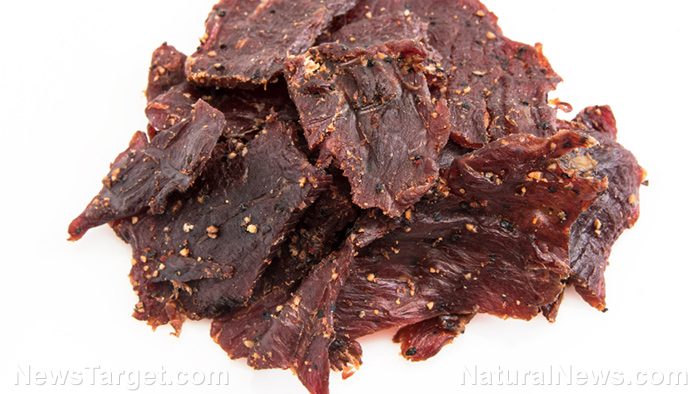
It's always a good idea to brush up on your survival skills. You never know when your knowledge of fire making or foraging is going to come in handy.
If you're new to hunting and meat preservation, this article can give you tips on how to cure and preserve meant when you're outdoors.
The first food preservation method we'll explore is curing, which uses salt, sugar, nitrite and/or nitrate to draw out the moisture in meat.
- Dry curing meat -- When you dry cure meat, you need to rub salt all over the meat and dry it to preserve it. Flavorings such as pepper or other spices can be added to a dry rub.
- Wet curing meat -- For this method, meat is preserved using a saltwater solution with 15 to 20 percent salt. Small cuts of meat are placed in this solution, and it is soaked for around five minutes. The meat is then taken out of the solution and hung out to dry. Take note that you mustn't hang the meat in a sunlit area because this can result in unevenly cured meat. Always dry the meat in a well-ventilated area using hooks that are rust-proof. The wet curing process often lasts about five days. The salt in the meat will usually repel any insects. (Related: How to Preserve Food and Storing Food Safely and Naturally.)
After the curing process, you can simply rehydrate the meat before consumption. This is usually done via boiling. Once cured meat is boiled, its nutritional content is almost the same as fresh meat. Curing is an effective method of meat preservation, but make sure you store meat in a dry environment to avoid spoilage.
Smoking meat gives it a "savory, barbecue" flavor. Meat that is smoked longer also has a longer shelf life. For example, meat smoked overnight can last for at least a week and meat smoked for two days can last for about two to four weeks. Do take note that smoking meat for longer than a day gives it a stronger smoky flavor.
To smoke meat:
- Get green wood or dampen the wood for the fire. When smoking meat, you need more smoke instead of fire. Don't use wood that is resinous.
- Cover the fire. You can try two methods to do this. First is to dig a hole in the ground and drape a "poncho, sheet, part of a parachute, or other covering" over the fire. The second method is creating a "teepee" around the fire.
- Cut the meat into thin slices with the strips at least six centimeters (cm) thick. Place the meat high enough above the flames so it’s smoked instead of cooked.
Once the meat is smoked, it will be dry and rather brittle. It will curl a bit, but it shouldn’t feel cold to the touch. After smoking, the meat can be eaten right away.
If you're in an area where the temperature is below freezing, you can leave the meat outside. Freezing meat like this is almost the same as putting it in a working freezer. When frozen, meat is well-preserved until thawed. Remember to cook frozen meat before consumption to avoid food poisoning.
To make jerky when you're outdoors, place meat on a rack over a flame. This helps dry out the meat, but like smoking, you need to make sure that the meat racks are not too close to the fire. As the meat dries, the smoke will turn the meat into jerky. You can hasten the drying process by covering the fire.
You can also make jerky without a fire, but only if the meat has been cured before it is dried. You can hang meat inside a box and dry it using a fan, and this produces "exceptionally tasty jerky" that you can eat even before it’s fully dried. Jerky made using this technique often tastes better than store-bought jerky.
When gathering wood for curing or drying meat, avoid these toxic tree species:
- Black locust
- Yew
- Buckeye
- Horse chestnut
- Rhododendron
- Mountain laurel
You can learn more about food preservation, prepping, and survival at Bugout.news.
Sources include:
Please contact us for more information.














